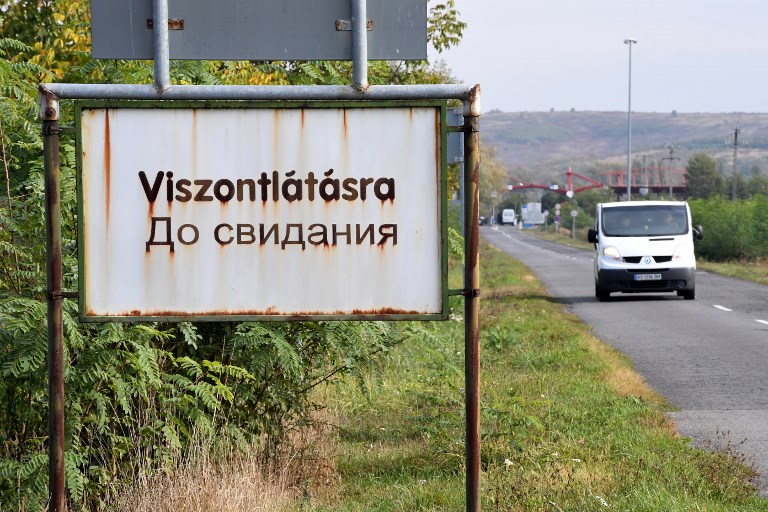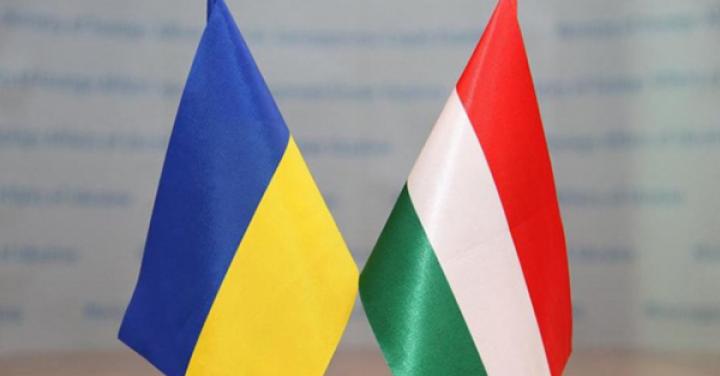On the 27th of September, Hungary and Russia officially signed a new long-term gas contract. The main goal of the contract is to bypass Ukraine. Kiev responded immediately and attacked the contract at the European Court of Justice. Furthermore, they alleged that Hungary is violating international law. However, this is not the first incident which emerges between the two countries. In recent years rising tension was palpable between Kiev and Budapest.
Hungary is mostly known for the Rubik’s Cube, Goulash soup and Puskás, while Ukraine is a more well-known country around the world due to Chernobyl’s nuclear disaster, Hunter Biden’s corruption case and the ongoing Russian separatism.

The two neighbors used to have strong and friendly ties after the political transitions back in 1989. After the fall of communism during the chaotic time of the nineties both countries were trying to find their place in the new world order. While Hungary successfully joined the EU and NATO, Ukraine remained on its own path struggling between the west and the east, while Russian influence never disappeared from the country. The rising political, social and ethnical tension caused a civil war after the so called maidan revolution in 2014. Eastern Ukraine became a battleground for Russian separatists who are still strongly backed by the Kremlin.
As well as the civil war, annexation of Crimea by Russia strengthened the far-right political movements in Ukraine. As a result, Ukrainian policy towards minorities was changed. This change has not just affected the Russian speaking minority – who were originally the main target of this new social and governmental attitude, but also the Hungarian and Romanian minorities. Kiev adopted a new language law which prohibited the use of minority languages in high school education. This move was more than triggering for the Hungarian politicians, but let’s take a look at the other side as well!
Meanwhile in Hungary, the main line of foreign affairs policy had changed since the right-wing conservatives came into power in 2010. The so called “eastern opening” strategy tightened the ties with Russia, China and other Far East countries – but not with Ukraine. This raised the Ukrainian suspicion of Hungary being a “Trojan horse” for Russia. Furthermore, the importance of the approximately two million ethnic Hungarians who reside outside of Hungary since the treaty of Trianon has increased. Not just because double citizenship and limited electoral rights were provided to these people, but because of the mostly negative socio-economical discrimination of these ethnic Hungarians by their host-state. On the other hand, Hungary has had bad experiences with promises from other governments. For example, Romania promised a wide range of minority rights to the ethnic Hungarians, in order to become an EU member, but they never fulfilled them after they successfully joined the EU. This short example also shows that Brussels right now is not prepared enough to defend ethnic minorities in EU countries.

These circumstances opened a new dimension in the relationship between Ukraine and Hungary, while Kiev hardly started to discriminate the approximately two-hundred-thousand Hungarians living in Transcarpathia. For an answer, Budapest blocked Ukrainian efforts to tighten their relationship with NATO and the EU. Far-right organizations in Ukraine started to see Hungarians as the new separatist on the western borderlands. As a result, hate crimes occurred in the region against Hungarians. Additionally, Ukrainian state authorities also took action and arrested several minority politicians with the charges of separatism and expelled several Hungarian politicians from the territory of Ukraine.
To summarize, Ukraine shall consider that if they want to join the so called “western valued” countries, they should respect the rights of minorities. Such as, accessible native language education and equal allocation of funds from the central budget for regions inhibited by minorities. Otherwise, Hungary is willing to continue blocking Ukraine’s efforts of becoming a part of the “western club”. Meanwhile, in order to maintain good relationships with neighbors in the future also, it is understandable that Hungary is expected to put more effort into initiating dialogues instead of immediate reactions.

Conclusively, the aim of both countries is to maintain stability and peace in the region while strengthening the independence of Central-Eastern Europe. They should try to understand each other’s points of view. The EU also needs to understand, they have to encourage and support more ethnical self-determination. Not just because historical ethnic groups are part of our colourful European culture, but they can also additionally help us build bridges between different nations and cultures. We have to understand, the Hungarian minority should be seen as a great opportunity to connect the two nations and not as a threat to Ukraine’s unity.
Sources:
Anita Komuves, Krisztina Than (2021). Hungary accuses Ukraine of meddling as it signs Russia gas pact in reuters.com https://www.reuters.com/business/energy/hungary-russias-gazprom-expected-sign-new-long-term-gas-supply-deal-monday-2021-09-27/
Bloomberg Markets and Finance (2021). Russia Offers to Ease Europe’s Gas Crisis, With Caveat in YouTube.com https://www.youtube.com/watch?v=FU8KLlZDOJU
Euronews with AFP (2021). Ukraine and Hungary pledge to ease tensions over border region of Transcarpathia in euronews.com https://www.euronews.com/2021/01/27/ukraine-and-hungary-pledge-to-ease-tensions-over-border-region-of-transcarpathia
Hungary Today (2021). EC: Hungarian-Russian Gas Supply Contract Complies with EU Law in hungarytoday.hu https://hungarytoday.hu/commission-hungary-ukraine-gas-russia/
Hybrid Warfare Analytical Group (2020). How Kremlin Undermines Ukrainian-Hungarian Relations: Case of Transcarpathia in Ukraine crisis media center https://uacrisis.org/en/how-kremlin-undermines-ukrainian-hungarian-relations-case-of-transcarpathia
Interfax-Ukraine (2021). Kyiv to respond to Hungary’s signing of contract on gas in kyivpost.com https://www.kyivpost.com/ukraine-politics/kyiv-to-respond-to-hungarys-signing-of-contract-on-gas.html
Lauren Chadwick (2021). Europe’s energy crisis: Why are natural gas prices soaring and how will it affect Europeans? in euronews.com https://www.euronews.com/2021/10/01/europe-s-energy-crisis-why-are-natural-gas-prices-soaring-and-how-will-it-affect-europeans
Marton Dunai (2017). Hungary, Ukraine clash over Kiev’s new language law in reuters.com https://www.reuters.com/article/uk-hungary-ukraine-eu-language-idUKKBN1CH2KC
MTI (2021). Fokozódik a magyar-ukrán ellentét a hosszú távú orosz gázszerződés miatt in portfolio.hu https://www.portfolio.hu/gazdasag/20210928/fokozodik-a-magyar-ukran-ellentet-a-hosszu-tavu-orosz-gazszerzodes-miatt-502664
Nógrádi György (2021). Kitörhet a háború Ukrajna és Magyarország között? Kína felvásárolja Ukrajnát? in youtube.hu https://www.youtube.com/watch?v=sL4Dz1z2pnI
Natalia Kudriavtseva (2019). Ukraine’s Language Law: Whose Rights Are Protected? in wilsoncenter.org https://www.wilsoncenter.org/blog-post/ukraines-language-law-whose-rights-are-protected
Polina Ivanova, Maria Tsvetkova, Ilya Zhegulev, Luke Baker (2019). What Hunter Biden did on the board of Ukrainian energy company Burisma in reuters.com https://www.reuters.com/article/us-hunter-biden-ukraine-idUSKBN1WX1P7
Reuters (2019). Ukraine expels Hungarian consul after passport row in euronews.com https://www.euronews.com/2018/10/04/ukraine-expels-hungarian-consul-after-passport-row-statement
Steve Rosenberg (2021). Russia denies weaponising energy amid Europe gas crisis in bbc.com https://www.bbc.com/news/world-europe-58896847
Szymon Kardaś, Andrzej Sadecki (2021). New Hungarian-Russian gas agreement in osw.waw.pl https://www.osw.waw.pl/en/publikacje/analyses/2021-09-29/new-hungarian-russian-gas-agreement



